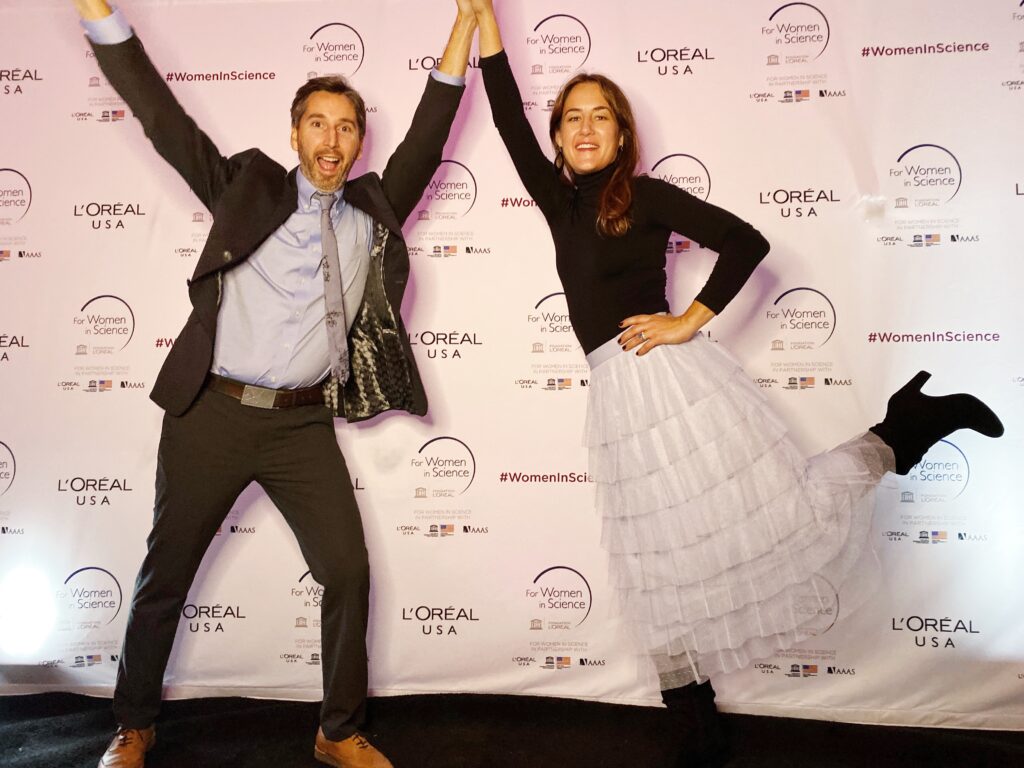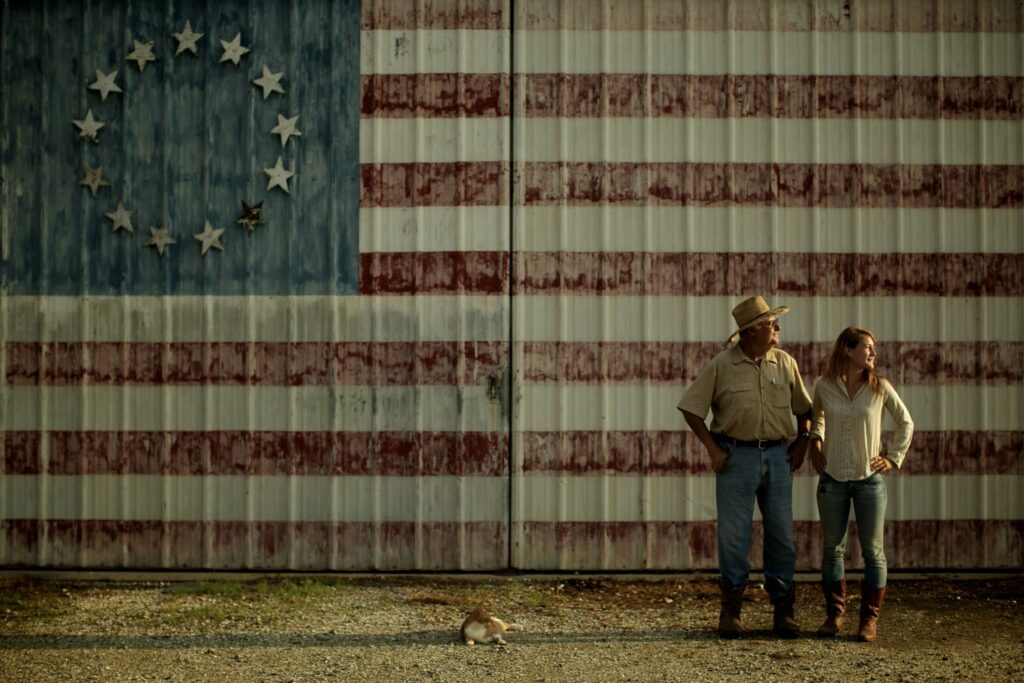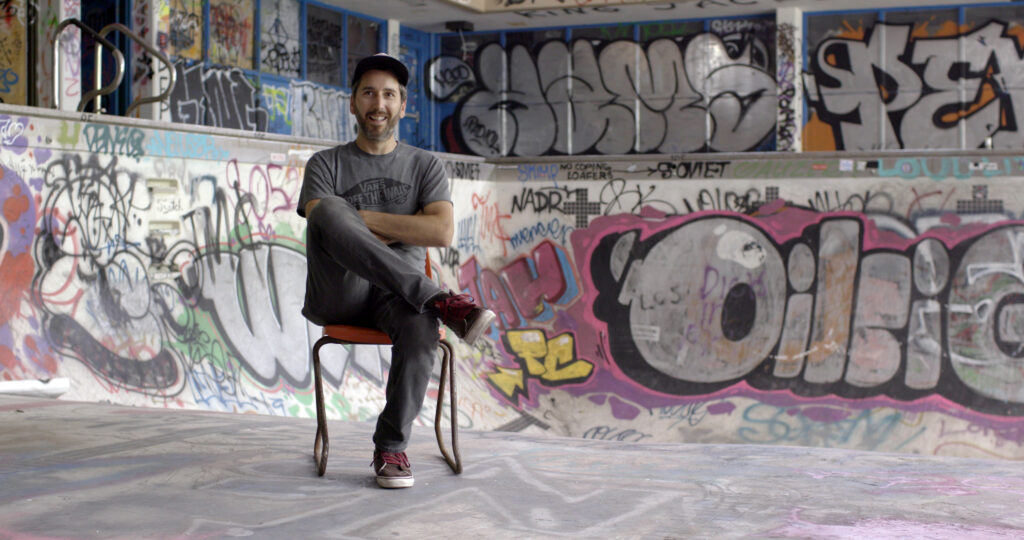Simply drawn to the title of the film, we recently sat down with Josie Swantek from Run Riot Films to talk about her project for L’oreal USA: For Women in Science. While researching Run Riot, we stumbled upon their social impact page. Naturally, we wanted to learn more as Run Riot are doing the kind of work we want to play a hand in. It’s top notch, it’s community oriented, and it’s inspiring.
For Women in Science features music from Marmoset artists Dame Asu, Different Angle, JB Lucas, Lightspeak, and Joey Kantor.
Marmoset: Tell us about Run Riot Films. Where are you based and what type of work do you focus on?
Josie: We started Run Riot eleven years ago in Washington D.C. Our other co-founder, Chris Tuss, holds down the D.C. fort and I moved West and am heading up RR in Evergreen, Colorado, just outside of Denver. Of late, we’ve been creating a lot of digital content for brands, non-profits and foundations, and for App tech start-ups. Though, our storytelling over the life of our company spans feature documentaries, broadcast docs, digital series and the occasional music video. Some career highlights for us include uncovering a sham anti-trafficking organization in our feature documentary, The Wrong Light and elevating the stories of incredibly brave women running for political office for the first time in Storm The Gates. On the commercial side, we’ve had fun making content for brands and media outlets from IBM to NPR about wonderfully ordinary people and also icons like Richard Branson, Lionel Richie and Former President Barack Obama.

M: This film seems like it introduced you to some really wonderful people and their stories. What drew you to this project and what did you learn?
J: The L’Oreal USA For Women in Science (FWIS) program has been around for 18 years and has awarded 90 postdoctoral women scientists with over $4 million in grants. That matters because the number of women in science decreases at every step along the academic career path, with the largest drop-off occurring in the post-doc phase. So, it’s a program we’re passionate about and that’s always a plus—when you get to elevate something you really believe in. It’s also fascinating (and encouraging) to learn the ways in which each scientist is pushing the boundaries in her field—ranging from a nuclear physicist trying to discover how we came to exist, to a disease ecologist looking at disease transmission (we interviewed her during the early days of Sars-COV2 and were so glad to know more about her work) to a biomedical engineer who will likely have a functional cartilage implant ready for me by the time I need a knee fix in a few years. This is our fourth year celebrating the FWIS fellows and every year we walk away feeling grateful these brilliant minds exist and that we’ve had the opportunity to get to know them and their work better.
M: What were some challenges you faced while creating this film?
J: For the second year in a row, we’ve had to produce this project remotely, directing very talented but nimble crews local to the FWIS scientists. Luckily, this year, four of the five scientists were in California and one in Utah, so we were able to collaborate solely with our favorite duo, Director of Photography, Pablo Durana, and his partner, AC/Jack of All Trades, Carina Hessmer. We’ve worked with Pablo for over a decade, so there’s a real level of trust and comfort in knowing he’s on set when we’re not. But directing an interview over zoom is still a challenge. I find it hard to read the room and know when the person I’m interviewing needs a break or a walkabout. You miss some of the nuance. And then there’s the connectivity challenge, which was present especially in Moab. On the plus side, I find I’m more decisive when I’m directing scenes via Zoom—something about the separation and not being in the room helps me “see” exactly what I like and don’t like and say so very directly.

M: What do you look for when choosing music for your projects? And what brought you to landing on these 6 songs for your film?
J: My partner, Chris, is also our resident editor and, as a former drummer in a band, he has very strong opinions about music. I’m not a musician, but I also know what I like musically. Often, when we’re working together in edit, we don’t like the same thing when choosing cues. Go figure! But we always find a resolve in edit, and many times he’s right about what’s going to work against picture. When I look for music, I want it to be both something I’d enjoy listening to without any picture and something that has a little bit of quirkiness or personality to it. Chris has an amazing ear for songs that work with the story/visuals. Every one of his picks for this year’s FWIS project made the cut.

M: On your website we were drawn to your Social Impact page. Can you tell us a little more about this side of your business and what your goals are with it?
J: Run Riot actually began because our friend and former partner introduced us to this amazing non-profit in Washington D.C. called DC Central Kitchen, and the three of us banded together to make/donate a video to them. The org loved that video so much that we learned they intended to have Anthony Bourdain introduce it and play it in front of a massive crowd at their annual fundraising event. That project, and that impending introduction, was the impetus for us quickly coming up with a name for the company we had just decided to create. For several years after that, we continued to donate a video to DCCK just because we loved them and were so into the good work they were doing in our city. So, that’s a long way of saying we’ve always been into the social impact side of things. When you can celebrate people who are doing the really good work, it helps to quell the — “What am I doing with my life? Am I doing enough?!”– kinds of questions that sometimes (every night!) knock at the door . . . at least for us.
M: Looking ahead, what are your aspirations for Run Riot Films?
J: Over the last ten years, the majority of our work has found us. In the next five years, we are shifting the way we work so that we can be more intentional about the projects we commit ourselves to. We’ve got lots of ideas for stories we want to tell—both in the scripted narrative space and in the documentary space—and so we’re making time to do that and we’re really excited about where that might take us.
Please visit Run Riot’s website or instagram to learn more about them and view more of their work.
